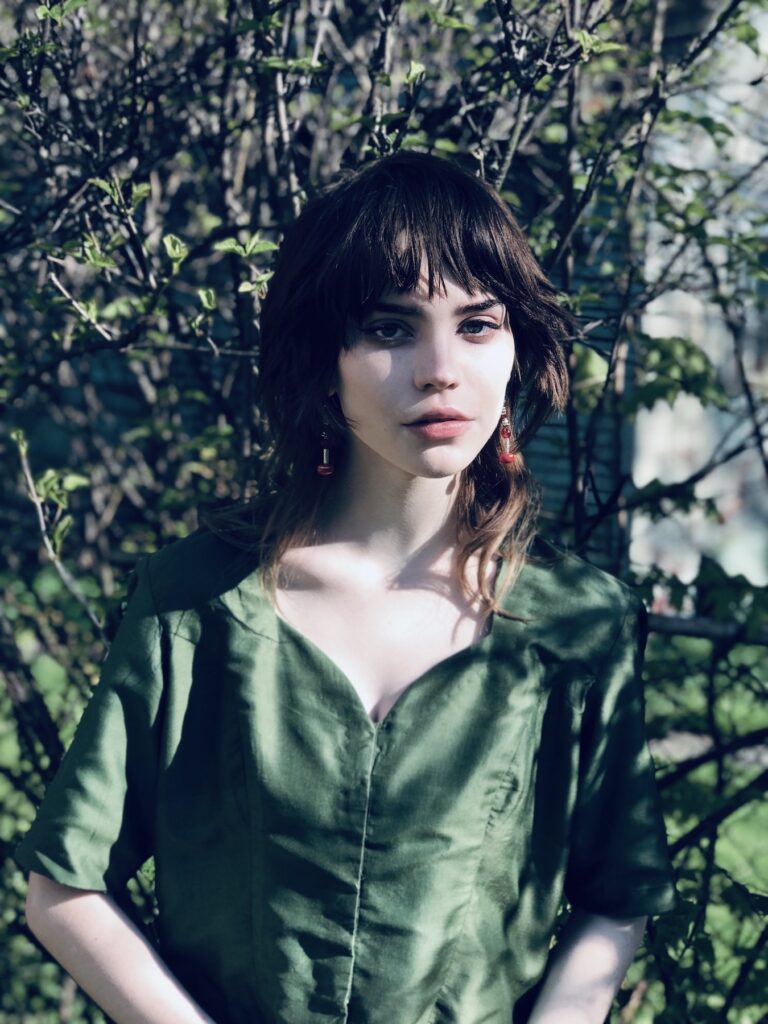
SOPHIE THATCHER
A self-isolating shoot at
Sophie’s home in Evanston
Sophie Thatcher is an American actress. The 20-year-old grew up in Evanston, Illinois and became involved in community theater at a young age. Thatcher stunned in a breakout role at the 2018 SXSW Film Festival, where she played opposite Pedro Pascal and Jay Duplass in the film “Prospect,” and has since been dubbed “one to watch.” Her newest role comes in one of Quibi’s debut series “When the Streetlights Go On,” where she stars as the troubled teenager Becky, whose sister has been murdered by an unknown assailant. The show follows Thatcher’s character and the residents of the small town as they try to uncover who murdered her sister. We spoke to Thatcher about her new role, how she’s been spending her quarantine and what’s next for the rising star.
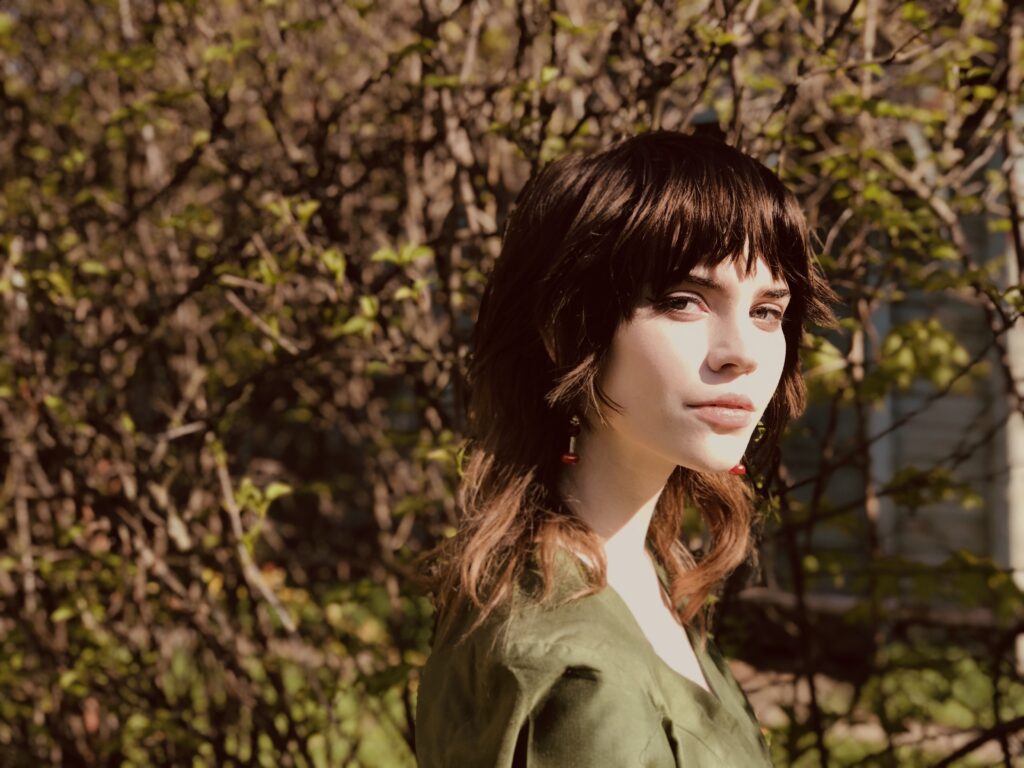
Interview by Sydney Nash.
Q: Where are you spending your quarantine? How have you been filling your days and what’s been bringing you comfort during this time?
A: I’ve been working on short films with my older sister Emma. I’ve just been focused on staying distracted by making music, reading, collaging, and watching new movies on Letterboxd. It’s been hard, as I imagine it is for everyone, to stay motivated, to take on new hobbies and make art during this time. But I think if you do at least one productive thing every day then you are set. People shouldn’t pressure themselves too much during this time. It’s all just about staying in, keeping safe and staying healthy.
Q: Tell me a little bit about your introduction to acting. When did you first discover your love for performance?
A: I was always an artistic kid and knew that no matter what, I was going to be an artist in some way. I was always painting, drawing, singing and putting on shows for people. I started with community theater and instantly took it seriously. I knew I was committed to acting, and it was something I wanted to pursue. I found comfort in putting on a different persona, one entirely different from mine. I was always very attentive to detail. I watched movies and began recreating characters’ mannerisms in my everyday life. I have always had a big imagination, and I think that’s one of the most important things about acting. When I learned that I could turn my imagination into reality, that’s what had me hooked.
Q: Your performance as Cee in Prospect was a bit of a breakout moment at the 2018 SXSW Festival. Tell me what that filming experience was like and how it’s impacted your acting career.
A: I think it was one of the most amazing and informative experiences of my life. We filmed Prospect in the Hoh rainforest in Seattle and inside a warehouse set built by the entire crew. Everyone was so caring, giving, and personable; I always felt so at ease on set. It was an example of a film that felt like a passion project. Everyone there was completely invested in it emotionally and it shone throughout the film, which is rare to find. The directors Chris Caldwell and Zeek Earl were a magical duo and felt like supportive older brothers. Working with Jay Duplass was wonderful, along with Pedro Pascal who was a beam of light the entire time.
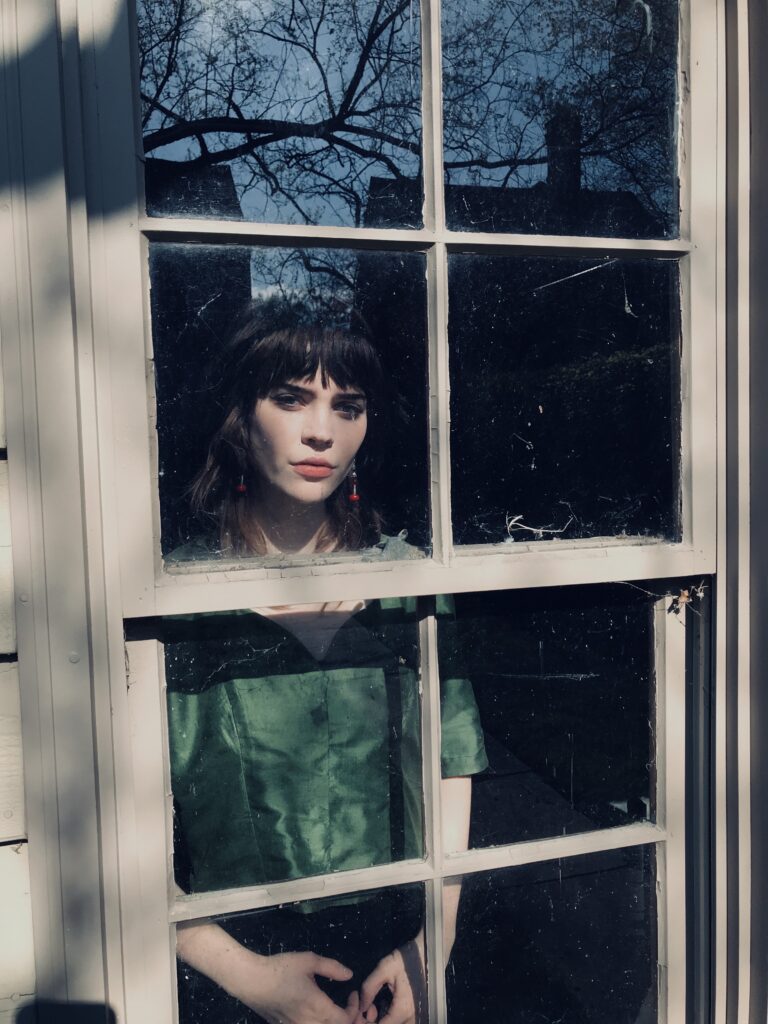
Q: What’s been the most challenging role you’ve ever had? The most transformative?
A: I mention this experience in nearly every interview, but only because it was truly a life-changing production. I played Anne Frank at Writers Theatre directed by the extremely talented Kimberly Senior. It was an eight month run. 200 shows. By then, I knew that this is what I wanted to do with my life. Theater is an all-encompassing experience and, when you are fully invested in the moment, for that to last – not one take – but two hours is the most exhilarating feeling. It was very emotionally and physically draining, especially since I was 14, and it was the summer before high school. All of my friends were hanging out getting ready for high school, but I had a show every night and had to stay in this certain mindset all day just to perform the show. It was discouraging at first, but realizing the impact it can have on the audience, and to have the opportunity to talk to them afterwards was beyond moving and inspiring. The feeling will stay within me forever. The theater space was very claustrophobic, which helped to jump into the reality of the characters. I think the audience was even experiencing the same anxiety as us on stage. With the audience being a foot away from us, everything had to be as honest and as sincere as possible. The intimacy element of the production made it easier for me to transform to film acting.
Q: You star in Quibi’s When the Streetlights Go On as Becky, an angsty punk teen whose sister has been murdered. What drew you to the role of Becky?
A: Becky is a very complex character with an interesting character trajectory. She has this vulnerability and softness inside her that you wouldn’t expect to come with the stereotype she appears to be at the beginning. She begins to take on this chameleon-like quality, as she is very influenced by the people that come in her life. She naturally changes in response to drastic events within her life. I can relate to the slight adjustments she made within her character and looks, to feel like she was moving on from a dark period, starting as an entirely new person. I find some kind of comfort in changing yourself in slight variations and starting fresh.
Q: Were you able to draw on any of your own teenage experiences to inform your performance of Becky?
A: The nostalgic feeling of the entire story drew me in because it all felt so familiar, within the references and primarily within my character Becky. Becky was similar to how I was back in high school. I didn’t really fit into any friend group and was always floating amongst different crowds and people during lunch. As stereotypical as it sounds, finding a place to sit was always the most anxiety-provoking thing for me. I felt pretty removed from everyone, and that’s how I picture Becky felt before she met Casper. Although I always expressed myself and made sure I was different within the way I presented myself and my interests, I would never imagine putting myself out there. Becky was able to surpass me in that way, and later in the series she begins to branch out and gain this confidence she never had before.
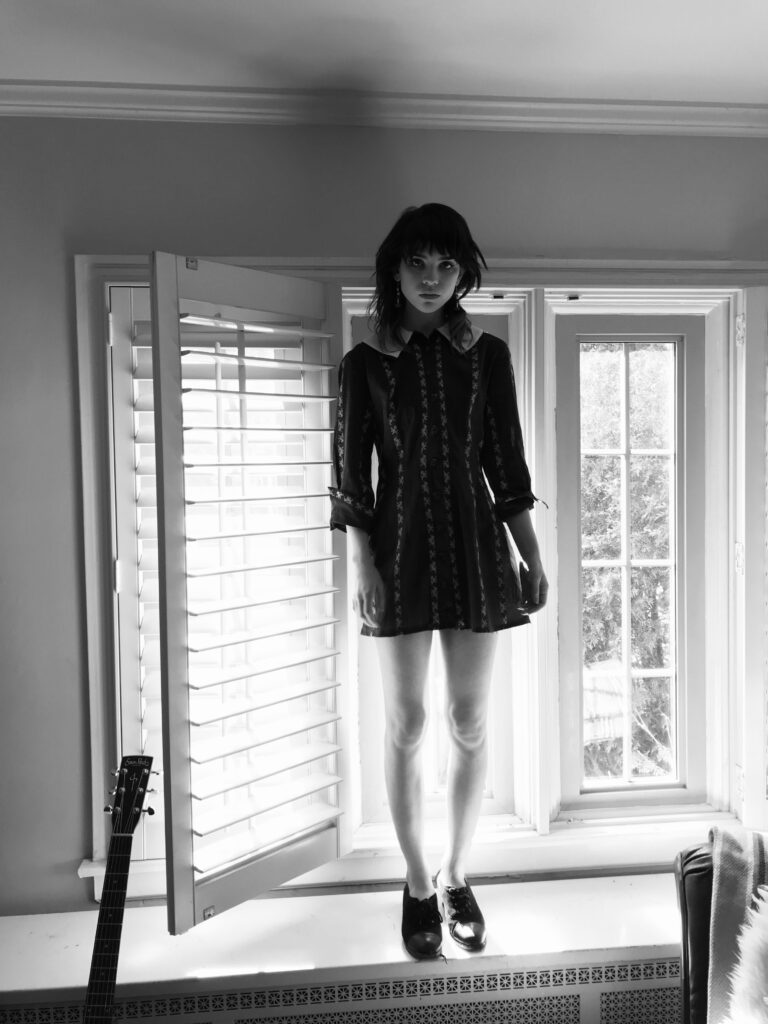
Q: The show took a few years to come to fruition. What’s it like to finally see the project come to life?
A: I watched it a couple months ago with the director Rebecca Thomas (whom I love and respect so much), and for the first time, was pleased watching my performance for a first viewing. Yes, there were things that I knew I could’ve done better. I think every actor hyper focuses on that during the first few viewings, but ultimately, I am very proud of me and my cast. Sam Strike and Chosen Jacobs are both stars and they really shine within this project. Rebecca Thomas is a dream to work with, and the series wouldn’t have been the same without her.
Q: The Quibi format is drastically different than what we’re used to seeing, with episodes ranging from 7-10 minutes. How do you think this will change the audiences’ experience watching When the Streetlights Go On?
A: I think it is very well-suited for the genre of the show, adding intrigue and suspense. Every episode ends with a cliffhanger, leaving the audience wanting more. I admire Quibi for trying something entirely new and for changing the norms of film and TV entirely.
Q: What kind of roles/genres do you want to explore in the future?
A: Anything that challenges me. Anything far from who I am, a character that will require research and require me to adapt new mannerisms and inflections. I want to experience people from every different kind of background. Currently, I’ve been obsessed with the idea of doing a period piece. I think it would be so much fun to experiment with an entirely different time than our own, learn the history and the specifics behind everything. To be able to fully invest myself in the past, something a part of our history, something that has shaped us into who we are today/shown how we have grown is very exciting to me.
Q: What are you looking forward to in the coming months and years? What’s next for you and your career?
A: I recently did a pilot for Showtime called Yellowjackets directed by Karyn Kusama where I play a young Juliette Lewis. We still don’t know if it’ll go to series, and quarantine has changed the shooting dates, too. Besides that, I have a couple projects in the air, nothing is definite yet. Honestly I just can’t wait to work again and keep busy.
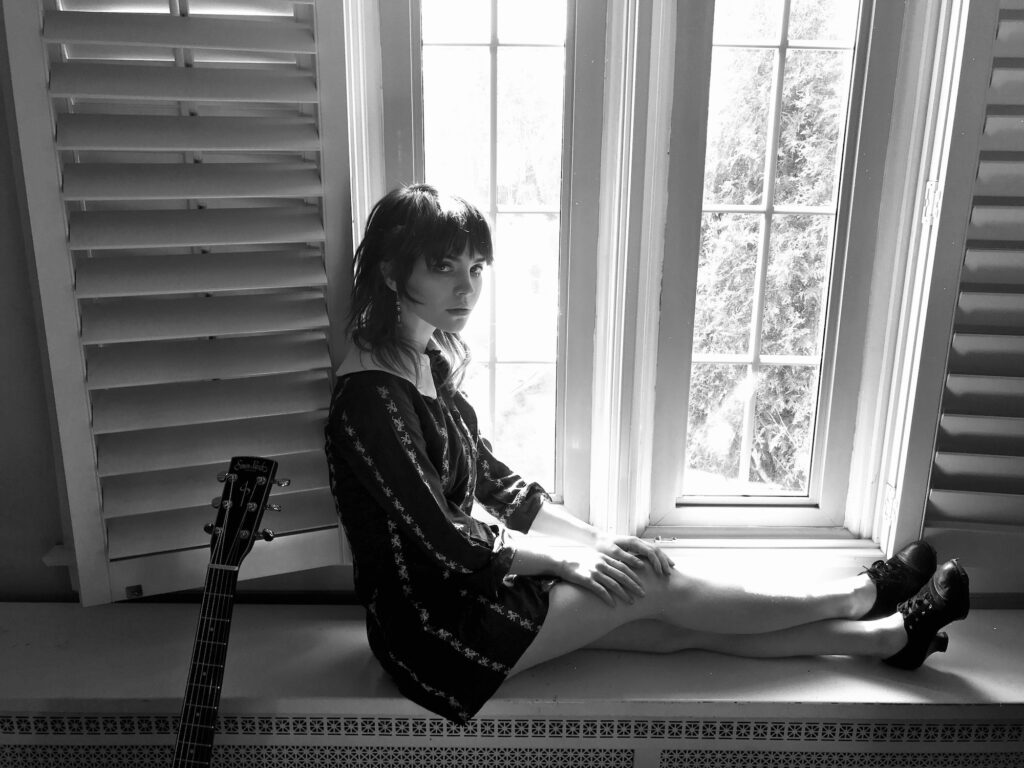
Quick Q’s
Q: What’s the first thing you’re going to do once quarantine is over?
A: Who knows when that will be, but more than anything I want to hang out with my closest friends and go out to eat at an Italian restaurant and catch up.
Q: What’s the last movie/tv show that made you cry?
A: Normal People on Hulu.
Q: Dream co-star?
A: Michelle Williams.
Q: Favorite guilty pleasure?
A: Gilmore Girls.
Q: If you weren’t an actor, what would you be?
A: A musician. I already make music, but I’m not fully dedicated to it like I am to acting yet.
Q: Who is your role model?
A: Fiona Apple.
Q: Most underrated movie?
A: Happiness by Todd Solondz.
Q: What’s the best advice you’ve ever received?
A: Jay Duplass once told me his best advice is to “not give a fuck” which I’ve stuck by, and honestly coming from him, it has stuck with me forever.
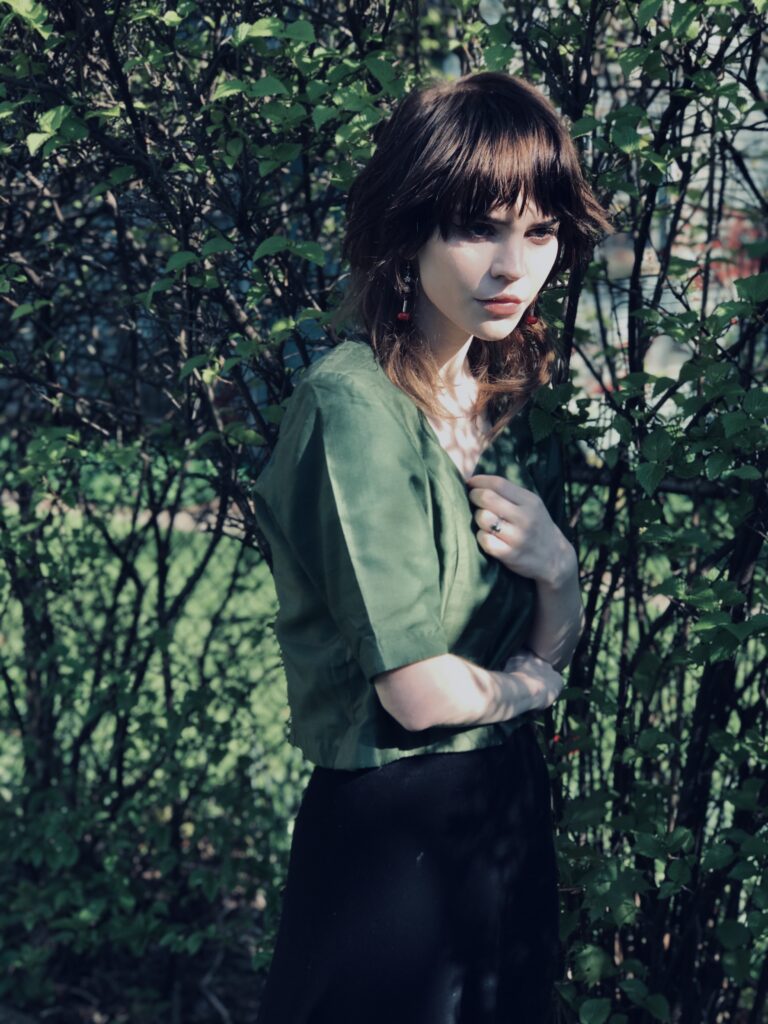
Photography | Sophie Thatcher’s Mom
Creative Director | Deborah Ferguson
Interview | Sydney Nash
Web Layout | Allie King
View the trailer for When the Street Lights Go On here